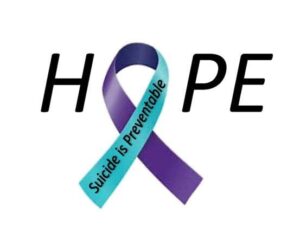
Counseling Services held two suicide prevention trainings for students, staff and faculty last week in Perry Paige.
For some, suicide can be a tough subject to talk about, let alone trying to prevent a loved one or a friend from harming themselves.
The counseling center wanted to provide attendees with a specific method when faced with a situation that could result in suicide.
It’s called “Question, Persuade, Refer,” or QPR for short. The QPR method is a universal, step by step approach with questions, responses and resources people can use to help others.
The first step is the questions. People are encouraged to ask someone if they’re thinking about suicide or how can they be best helped to avoid suicide.
After asking important questions to determine the kind of situation someone may be in, persuade them into believing otherwise. Affirm their feelings and let them know that you’re there to help.
If done correctly, persuasion can help deescalate the situation and make the person feel at ease.
The last step is referring. It’s recommended to always know the sources around that can provide professional help and advice to prevent situations that could be pointing forward suicide.
The QPR method was walked through step by step with examples by Alicia Jackson, the clinical program coordinator for counseling services at FAMU.
Jackson says that Counseling Services provides different trainings, including suicide prevention, anytime it’s requested.
“We do it as much as possible. We have outreach presentations that are either requested personally by the department or a student organization,” Jackson said.
One student was very responsive and active in the conversation about the QPR method.
Brikarri Williams, a psychology graduate student, attended the suicide prevention training because he feels it’s become a huge issue in today’s world.
“It’s a major killer among black men and women. The amount of times we seek help is low, so it’s important that our students come to programs like this to see what we can do to help those efforts to save ourselves,” Williams said.
Suicide among teens and young adults is at its highest rate since 2000, according to a report in the Journal of the American Medical Association.
Another attendee was there with a goal in mind, but for something larger than herself.
Tolulope Fiola, a doctoral environmental science student, believed it was important to come because she wants to take her knowledge from the training back to her home country of Nigeria.
“Two years ago, we still had a lot of people committing suicide, which was mainly among the youth. I noticed that it was because of death, poverty, lack of emotional support and cultural stigma,” she said. “I want to learn how to empower them and figure out how to help.”
Nigeria had the 15th highest suicide rate in the world in 2018.
Both trainings included a survey for attendees to rate their knowledge of suicide prevention tips before and after.
If you want to know more or know of someone who needs help, contact Counseling Services at (850) 599-3145.